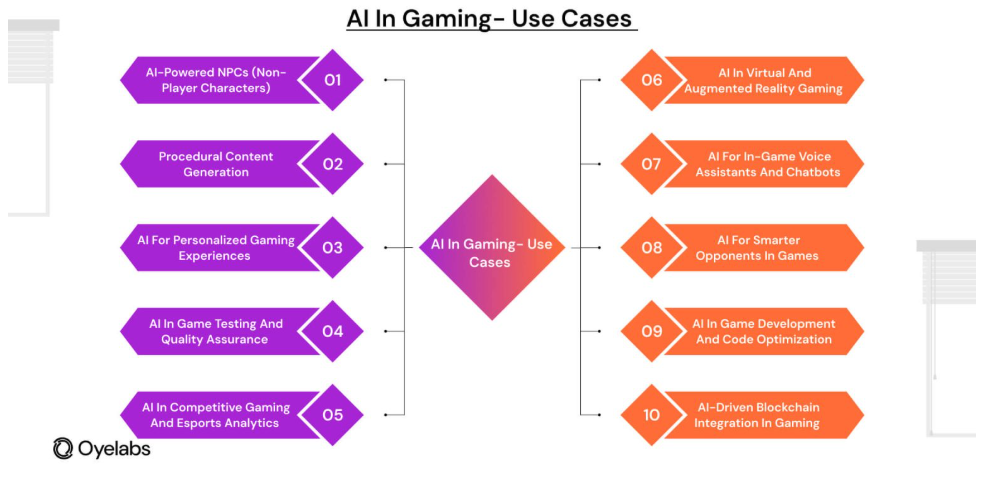The gaming industry has been thriving since artificial intelligence (AI) entered the scene. This technology has introduced innovative solutions for game developers and, of course, for players. Advanced, VR-based capabilities for creators, and an enhanced gaming experience for users. In this article, we will analyse how AI has revolutionized the traditional industry.
The Evolution of the Gaming Industry
With AI entering the market, one major shift occurred for players – games can now significantly personalize the individual player’s experience, which increases engagement far more than traditional games did. Below we discuss the main benefits that AI has brought into the industry.
New Non-Playable Character (NPC) Capabilities and Improved Graphics
Traditional models often failed to convince players, and NPCs appeared robotic and easy to defeat. With today’s technology, NPCs can learn from player behaviour and, to some extent, adapt their actions in real time – making the game more exciting, as these characters become stronger and more complex.
AI can also enhance game visuals by improving graphic rendering or helping generate animations. For example, NVIDIA tools using AI can upscale resolution while maintaining high performance. As a result, environments and characters in games become not only higher quality but also more realistic.
World Generation Capabilities and Voice Technology
AI has changed the gaming industry by enabling real-time content generation – such as environments, game levels, or entire worlds. Decisions are made based on the individual player’s taste and choices, creating a unique experience. Additionally, VR and AR technologies are evolving in this space, as AI enhances motion tracking, real-time storyline modelling, and more.
Voice-controlled AI has also entered the market, enabling players to issue voice commands. Some games integrate voice assistants like Alexa or Google Assistant, and within gaming communities, AI can provide instant responses to player queries.
Creating Personalization
As mentioned, AI solutions personalize the user experience, allowing the game to be shaped according to the player’s expectations. The environment and narrative can shift based on choices. This is already implemented in games like Digimon Survive or The Witcher.
New Opportunities for Developers
Looking at the game development field, AI can accelerate testing and quality assurance processes. AI bots can simulate and test thousands of possible scenarios, evaluate effectiveness, and report discovered or potential bugs.
This removes the need for manual testing, reduces the risk of errors, and saves time. It also ensures that minimal fixes are required post-launch.
Additionally, some tasks can be automated. Developers in the gaming industry can use AI to automate coding processes, perform repetitive actions, and focus more on the creative aspects.

The picture shows summarized use cases of AI in the gaming industry. Image source: Oyelabs
Final Thoughts
As AI continues to transform the gaming industry, it is unlikely to stop here. In the future, we may see even more dynamic and advanced solutions – NPCs with fully interactive conversations, expanded world-generation capabilities, and real-time language translation tools to overcome language barriers.
If you are interested in this topic, we suggest you check our articles:
